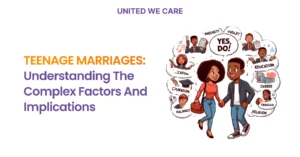Introduction
No human is perfect, and neither are parents. The way a parent connects with their child or does not can lead to attachment trauma. This trauma also dictates the way we form connections as adults. Mommy issues vs daddy issues are the manifestation of our attachment issues.
One way to explain mommy and daddy issues is Freud’s psychosexual stages of development[1]. This theory suggests that between the ages of three and five, children start developing attraction for the opposite-sex parent. They also start becoming jealous of their same-sex parent. This conflict is known as the Oedipus complex, aka. Mommy issues for boys and Electra complex, aka. Daddy issues for girls.
But this does not mean that only boys have mommy issues and girls have daddy issues. The root of these complexes is an insecure attachment with either or both of the parents.
Having an insecure attachment to a parent figure as a child can lead to unstable and problematic social and romantic relationships as adults.
Suggested Article: The Truth About The Psychology Of Men With Mommy Issues
Difference Between Mommy Issues vs Daddy Issues
As children, our mother is the most important figure for us. She is our primary caregiver and is responsible for our social, emotional, and overall development[2].
An insecure attachment develops if a mother does not provide essential emotional support to the child. This can be in the form of abuse, neglect, abandonment, absence, or enmeshment.
The child, as an adult, develops mommy issues. This means they expect their romantic partners to be there for them and fulfil the needs their mother couldn’t.
If a child experiences neglect or absence from their mother, as an adult, they will try and do anything they can to keep their romantic partners happy so they don’t leave. They may be too clingy and develop people-pleasing tendencies.
On the other hand, if a mother is too smothering or does not establish any boundaries, the child may develop unhealthy codependency with their partner as an adult.
Let’s talk about the next most important figure of our childhood: the father.
Suppose a child has a traumatic or disappointing relationship with their father, such that he was emotionally unavailable, abusive, controlling, filled with anguish, or overindulgent. In that case, the child as an adult might choose a partner to create similarly troublesome dynamics.
Having an insecure attachment or a poor relationship with the father can affect the child’s sexual identity and behaviour as an adolescent and adult[3]. This means they find themselves in similar toxic relationship dynamics and use sex as a means to get more assurance and boost self-esteem. It can also manifest as being possessive and afraid to be alone.
Know more about Understanding Electra Complex and Daddy Issues
Causes of Mommy Issues vs Daddy Issues
Bowlby’s attachment theory[4] can explain the root cause of mommy and daddy issues. As children, we form emotional bonds with our caregivers. When our caregivers are available and responsive to our needs, we develop a sense of security. When they are unable to meet our needs, we develop an insecure attachment.
Read more about What causes Mommy Issues in men? Psychology, Meaning & Signs
Within a secure attachment, we feel safe and comfortable to trust other people and form intimate connections. Different types of insecure attachment can cause mommy and daddy issues, such as:
- Anxious attachment: This attachment style is characteristic of inconsistent parenting. The parent figure may have sometimes been present and nurturing but emotionally unavailable or insensitive to the child’s needs at other times. This can result in the child becoming confused and insecure with regard to what to expect from their caregiver.
- Avoidant attachment: Imagine being so overwhelmed with something that you just don’t want to think about it or deal with it. The same happens in this attachment style. A parent who shuts themselves off when confronted with their child’s emotional needs. They expect their very young child to be emotionally independent and often discourage outward displays of emotion.
- Disorganized attachment: When a parent consistently fails to respond appropriately to their child in distress, the child simultaneously craves their attention but also fears them. This is a disorganized attachment style. The child continues to remain distressed with or without the presence of the caregiver due to their inappropriate responses to their distress, such as yelling, laughing, mocking, or ignoring.
Symptoms of Mommy Issues vs Daddy Issues
The attachment style you develop with your parent figures can have a lifelong influence on the way you communicate your emotions and needs to your partner and deal with conflict in relationships. Mommy and daddy issues with an anxious attachment look like:
- Not being able to trust others
- Having low self-worth
- Fearing that people, especially a partner, will abandon you
- Being impulsive and unpredictable in relationships
- Codependency
With avoidant attachment, it can show up as:
- Struggle to form genuine bonds with others
- Avoid closeness in relationships
- Not being able to verbalize your emotional needs
- Feeling others are clingy when they express their emotional needs
- Withdrawing from unpleasant conversations and situations
- Fearing rejection
Disorganized attachment manifests as:
- Being on the edge, either seeking extreme closeness or distance
- Feeling anxious about others’ intentions
- Expecting rejection, disappointment, and hurt
- Having a negative view of self and others
Conclusion
Mommy and daddy issues are simply the result of having an insecure attachment with our primary caregivers. Both men and women can have either of these issues.
A mother is responsible for our social and emotional development. Hence, an insecure attachment to the mother can result in clinginess and people-pleasing tendencies in the child.
A father is responsible for providing us with safety and security. A lack of this can result negatively in a child’s sexual identity and behaviour.
Without a sense of security, we form either an anxious, avoidant or disorganized attachment style. As adults, this impacts the way we communicate our needs, handle conflict, and what we expect from relationships.
Our attachment issues and styles are not set in stone. It is possible to shift to a secure attachment style and get over our mommy and daddy issues. The first step is to become aware of our patterns. With patience and support, we can make healthy changes in life.
Must Read: Importance of trust in a romantic relationship
References:
[1] Dr. H. Elkatawneh, PhD, “Freud’s Psycho-Sexual Stages of Development,” SSRN, https://papers.ssrn.com/sol3/papers.cfm?abstract_id=2364215. [Accessed: Oct. 18, 2023].
[2] D. Winnicott, “Mirror-role of mother and family in child development 1,” Parent-Infant Psychodynamics, https://www.taylorfrancis.com/chapters/edit/10.4324/9780429478154-3/mirror-role-mother-family-child-development-1-donald-winnicott. [Accessed: Oct. 18, 2023].
[3] R. Burton and J. Whiting, “The Absent Father and Cross-sex Identity,” Merrill-Palmer Quarterly of Behavior and Development, https://www.jstor.org/stable/23082531. [Accessed: Oct. 18, 2023].
[4] P. Shaver and M. Mikulincer, “An Overview of Adult Attachment Theory,” https://books.google.co.in/books?id=nBjAn3rKOLMC&lpg=PA17&ots=_c9cYKqIun&dq=attachment%20theory&lr&pg=PA17#v=onepage&q=attachment%20theory&f=false. [Accessed: Oct. 18, 2023].






